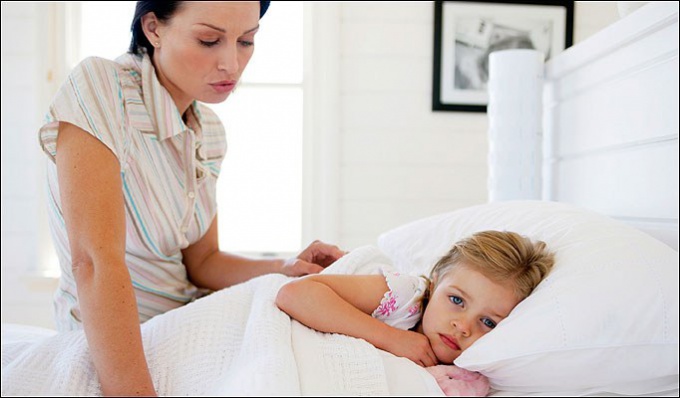Instruction
1
The nature of the symptoms and course of pneumonia in a child depends on his age, cause and localization of the inflammatory process and the condition of the baby at the time of development of the disease. In premature babies and infants, the disease is heavier.
2
In the beginning there are symptoms of pneumonia: lethargy or irritability, lack of appetite, loss of sleep. They gradually and sometimes immediately joined by signs of inflammation of the upper respiratory tract: sneezing, dry cough, runny nose. They are accompanied by a sharp rise in temperature to 39-40 ° C that lasts for several days.
3
Due to a strong intoxication is impaired functioning of the gastrointestinal tract, manifested by nausea, vomiting, stool disturbances, bloating. These symptoms associated with the exposure of toxins to the mucous membrane of the stomach.
4
The inflammatory process in the lungs impairs normal breathing, as a result, the baby becomes restless, around the nasolabial triangle appears in a characteristic blue, swell the wings of the nose. These signs indicate oxygen deficiency of the first degree, which develops pneumonia. Breathing becomes frequent, arrhythmic, moaning. If you experience these symptoms you should pay attention to the chest. In the lung it becomes swollen with a characteristic drawn intercostal space.
5
In the absence of timely treatment early in the disease followed by a second stage of pneumonia. It shows signs of oxygen deficiency of the second degree. Breathing becomes irregular with periodic stops. Cyanosis appears not only around the nasolabial triangle, and throughout the body. The state of the baby becomes heavy and starts to threaten his life.
6
Often in the background of a sharp rise in temperature and severe intoxication appear cramps and meningeal syndrome: tension neck, stupor, fontanel bulging (in infants).
7
To define pneumonia in a child is certainly capable only doctor, so when you cough or runny nose accompanied by fever, you should contact him immediately. Even with the unconfirmed diagnosis of early treatment for the common cold will help prevent secondary pneumonia developing as a complication.



